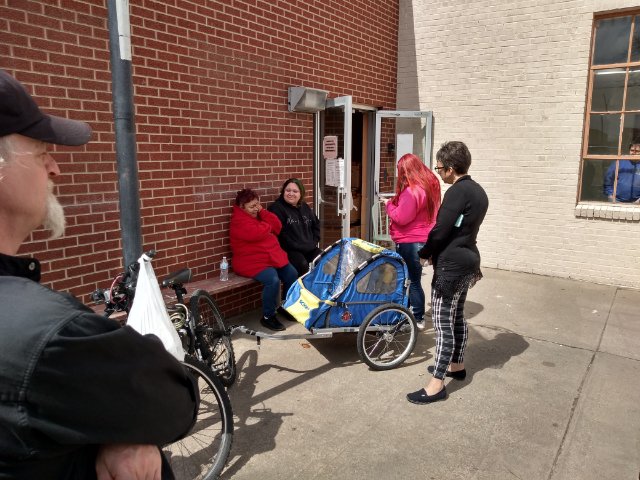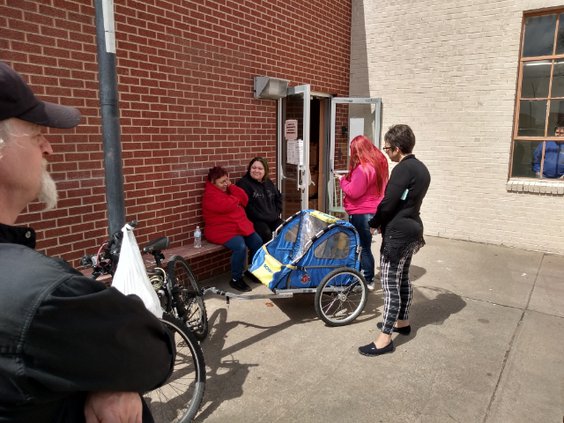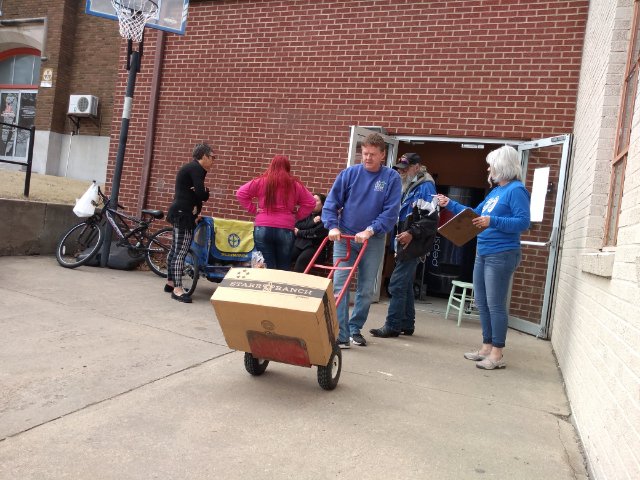

On its website, the Central Kansas Dream Center describes its purpose as, “Reaching Hurting People, Restoring Families, and Realizing Dreams.” In a burgeoning crisis which leaves no life untouched, Dream Center Director Kimberly Becker wants to make sure the center continues to fulfill that purpose by meeting the community’s most critical needs.
“I think right now, physically, we have to be the hands and feet of Jesus,” she said.
Like nearly every other organization, though, how they administer those services has been heavily impacted by the Covid-19 pandemic, and the new regulations and mandates it has brought about.
The Dream Center’s core ministries are residential discipleship programs to help both men and women overcome life-controlling issues such as substance abuse, mental health, and healing from mental, physical and emotional abuse, and the Life Giving Center, a transitional housing shelter for women with or without children. Because of the number of out-of-state applicants they get for these programs, Becker said, they have had to stop accepting new residents at this time.
However, the residential ministries are not the only ones impacted by current circumstances.
The Dream Center also operates the DC Kitchen (formerly the Hungry Hearts Soup Kitchen), which Becker said is open Monday through Friday from 11 a.m. to 1 p.m. and serves an average of 50-70 people a day.
Both services, she said have been heavily impacted by the pandemic.
“Our older and more fragile individuals who normally come to the soup kitchen are afraid to,” she said.
For those who come for soup kitchen services, though, the Dream Center has taken extra steps to ensure they are following guidelines while still being able to provide necessary services.
“The biggest thing is we don’t want to stop any services, we just want to take precautions,” Becker said.
On Tuesday afternoon, she said, the soup kitchen began serving meals outdoors on better weather days in order to comply with state mandates limiting social gatherings to no more than 10 people. Tables were set up in such a way as to ensure proper social distancing guidelines were maintained. The only people inside the soup kitchen, she said, are regular service staff in order to avoid potential contamination and exposure issues.
The Dream Center has seen an increase in the number of individuals requesting food boxes to help supplement incomes lost due to not being able to work during this time.
To meet the increased need, she said, several local churches have come together to collect extra food donations. People who are unable to pick up those food boxes in person and have them delivered and left at the door.
Another segment of the population the Dream Center looks to address, particularly in during a time of crisis, is Great Bend’s homeless population. While the Dream Center is not able to take them in, workers are taking extra steps to ensure they are cared for and provided for, as well.
“One of the biggest things is making sure that their needs are being met,” Becker said. “(We want to make sure) they’re not overlooked.”
Becker said the Dream Center seeks to provide them with proper clothing, as well as adequate blankets for cooler nights. They also look to provide adequate food, even providing them extra food on the weekends when the homeless do not have other places to be able to receive meals. To minimize exposure issues at the Dream Center, she said, they have people who can meet the homeless population at the places they shelter to ensure needs are met. If they come across an individual who is getting sick, they want to try to help him find the needed medical care.
For the homeless population, the Dream Center also offers a mailbox program to give them a physical address which allows them to received mail, have an ID, and apply for jobs. While normally these individuals would come into the building, the Dream Center is now meeting them at the door with their mail when they come to pick up food, again to limit potential exposure.
The Dream Center also operates the Kingdom Kloset, which provides clothing and household items. Like the food boxes, Becker said, this ministry is also seeing increased demand from those out of work and looking to meet basic household needs. The service, which has limited hours, has also taken steps to meet guidelines, limiting the number of people who are allowed in at any given time, as well as offering delivery for home-bound and at-risk populations.
While they work to meet the critical physical needs, though, Becker said they don’t want to overlook the spiritual needs people have during crisis times.
“And as leaders, especially leaders of the Dream Center, we feel like our biggest piece is to bring safety, security and a foundation so people aren’t caught up in the fear,” she said.
As they work to meet the increased needs, though, Becker stressed they need help from the community, and noted a variety of ways people can do that.
“We are taking food donations and clothing donations. They just needed to call out what type of clothing we’re taking,” she said.
Along with donations, though, she said they have a critical need for volunteers in a variety of roles, including helping serve meals outdoors to soup kitchen patrons while they are not able to serve inside.
“While we’re serving outside, we’re trying to hand-deliver those meals for less contact,” she said.
Any volunteers, though, she said, will be closely screened for potential illness, as well as travel to “hot spots,” in order to prevent potential exposure both to other volunteers, as well as the Dream Center’s residents and patrons.
As the crisis evolves, Becker wants people to know the Dream Center will work to connect people with whatever help they need.
“As things continue, if there are needs that people are not finding resources for, they can call us,” she said. “We will try to connect them with other resources or become that resource.”
Anyone needing assistance, or anyone looking to donate or volunteer, is encouraged to call the Dream Center, 620-282-4014.




